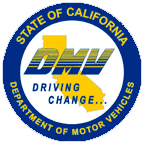California Certification
Tuesday Jan 5, 2010  On January 5th Wilber received a letter from the California Department of Motor Vehicles which stated “Our management decision is that we will no longer be submitting letters to subrogation departments, insurance companies and attorneys regarding the suspension of uninsured drivers.” Curious about California’s handling of the administration of releases and installment agreements we decided to contact the State of California to obtain clarification.
On January 5th Wilber received a letter from the California Department of Motor Vehicles which stated “Our management decision is that we will no longer be submitting letters to subrogation departments, insurance companies and attorneys regarding the suspension of uninsured drivers.” Curious about California’s handling of the administration of releases and installment agreements we decided to contact the State of California to obtain clarification.
Through subsequent conversations with the California DMV, and with increasing concern on our part, we discovered that California has adopted new policy positions for administration of Uninsured Motorist Certification. The California DMV made clear that on the basis of an administrative (not legislative) decision, they will no longer be involved in the civil side of uninsured auto accidents. Though the process of certification is automatic for all uninsured parties involved in an accident regardless of fault, California has made it relatively easy for the uninsured motorist to overcome the difficulty of a suspended license.
California requires the completion of a form SR-1 by all parties to an accident (or their carriers) within ten days of an accident which caused vehicle or property damage of $750.00 or more or where there were injuries or death. The state then suspends driving privileges for all uninsured motorists, regardless of liability. If coverage reported on an SR-1 form is then negated by a denial of coverage from a claimant’s reported carrier, a form SR-19 (along with a $20.00 fee) reporting this denial may be submitted to California’s DMV for investigation. Based on the correspondence we’ve received, and through the discussions we have had, they will no longer report the results of that investigation or communicate when an alternate carrier is discovered. Form INF70 is available to request information regarding license revocation but our experience has been that we have never received a reply from California when using that form.
Even more troubling is a new administrative process that allows the claimant, even if the state does act to suspend, to pay a reinstatement fee to reestablish their driving privilege, effectively eliminating the important leverage of continued suspension of driving privileges until damages caused by a liable party are paid or an installment agreement is executed. The policy adopted by the California DMV now allows California uninsured claimants who have been suspended to reinstate their driving privileges almost immediately by paying a rather small ($250.00) administrative fee to the state and presenting an SR-22 form. This reinstatement occurs without the uninsured motorist first taking financial responsibility for the losses they have inflicted.
This process allows the State of California the opportunity to limit their overhead cost, raise revenue through the fee structure, and establish insured drivers (constituents) back to the road. Unfortunately the process causes the loss of an insurance company’s traditional leverage used to obtain successful subrogation recovery.
Wilber’s success in California has been impressive over the years. As a law firm with an agency style, we fully intend to maintain our relative success when compared to our traditional agency competition when working California files. We are realists however. This administrative decision by the California DMV will certainly make UM Subrogation Recovery in California more difficult. The price tag to our insurance company clients will run into the millions of dollars in unrecovered UM subrogation dollars. It will also result in insurance companies sustaining increased costs involved with expensive litigation on files that previously would have been cured based upon the leverage obtained by requiring financial responsibility on the part of uninsured claimants prior to the reinstatement of driving privileges.
We encourage our clients to contact their internal legislative support systems, lobbyists, and executive management with information regarding the problem and the potential impact. State governments across the country are experiencing similar forces that led to the California DMV to decide as they did. Our hope is that California is not the first of potentially many states to make similar changes. In the meantime Wilber will monitor the situation and work to reinstate justice to the California certification process.
For more information feel free to contact our office or visit the California DMV website at http://www.dmv.ca.gov/ or call them at 800-777-0133.
